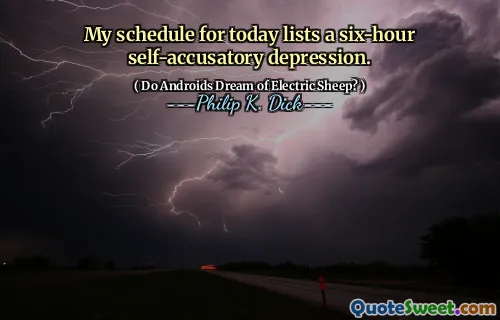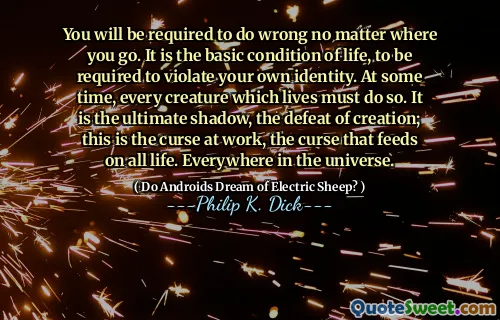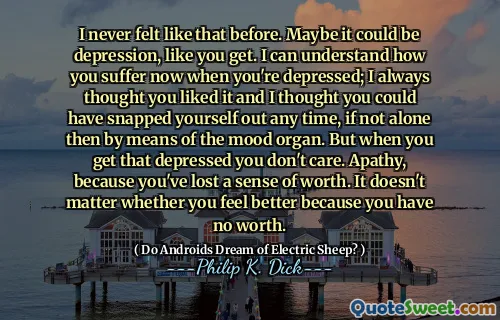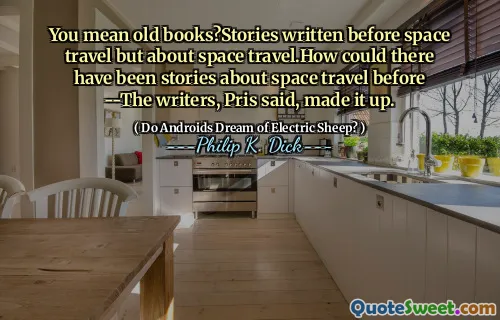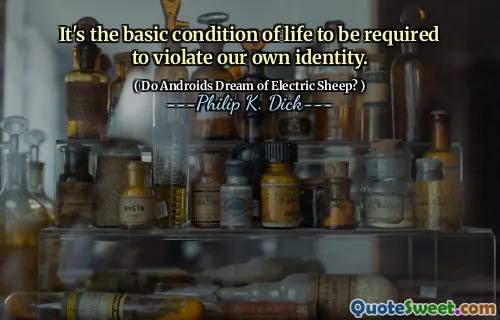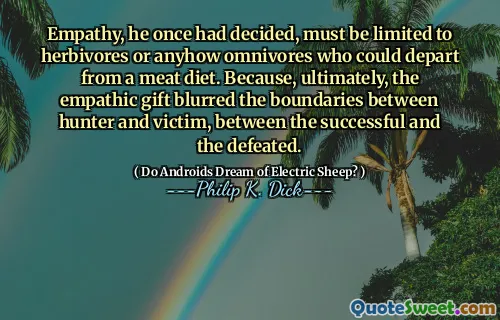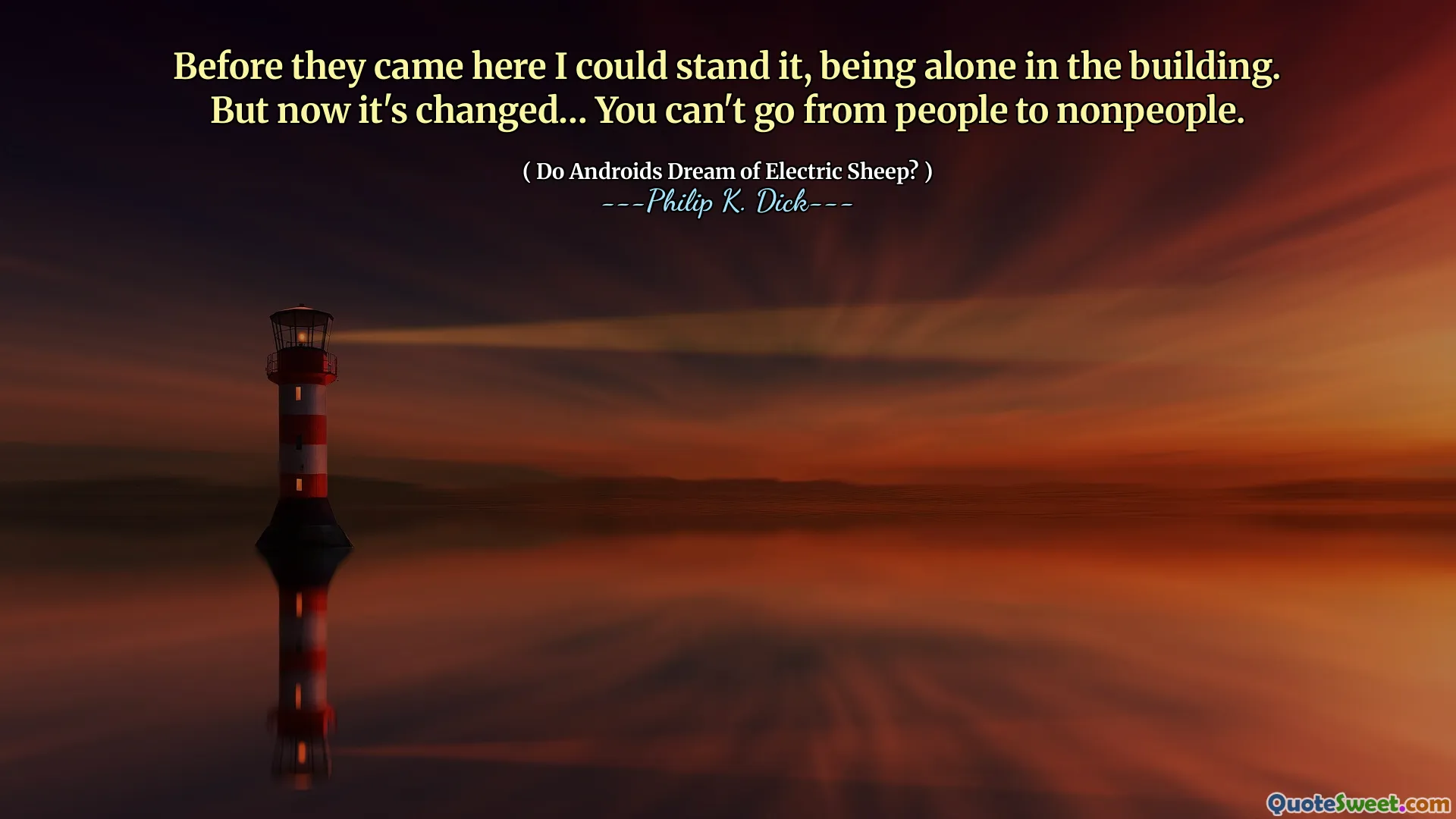
Before they came here I could stand it, being alone in the building. But now it's changed… You can't go from people to nonpeople.
In Philip K. Dick's "Do Androids Dream of Electric Sheep?", a character reflects on the loneliness experienced before the arrival of others. The initial quietude of solitude in a vast building felt bearable, but that perception shifts dramatically with the presence of others. The contrast becomes stark; it’s difficult to accept being surrounded by people only to return to isolation. The quote illustrates the emotional struggle of reconciling the need for connection with the overwhelming awareness of true loneliness.
This transformation highlights the inherent human desire for companionship. Once accustomed to interaction, the absence of that connection can feel unbearable, as it profoundly alters one's emotional landscape. The statement encapsulates a core theme of the novel: the exploration of what it means to be human and the significance of relationships in a world where artificial beings often replace genuine human connections. Dick's work invites readers to consider the depth of their emotional experiences in an increasingly disconnected society.
